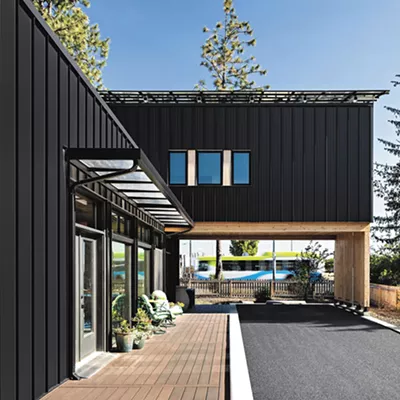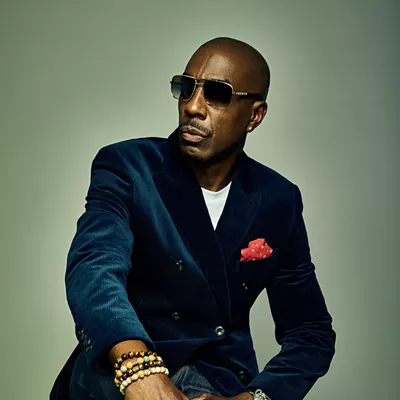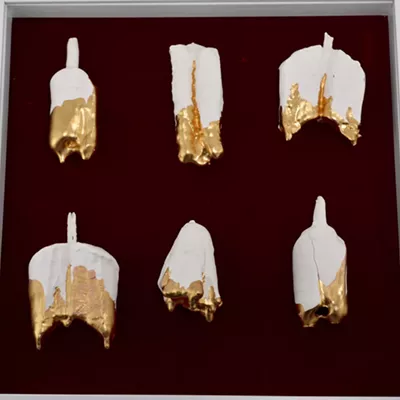Spokane Pride's best ability? Accessibility.
This year mobility improvement has been a focus for organizers, since Riverfront Park's grassy areas can be difficult for folks who use canes, walkers or wheelchairs to navigate (including Spokane Pride Vice President Julia Payne). Additionally, viewing the Pavilion stage can be a frustration for those who can't climb up onto the grassy knolls overlooking it.
To counteract this, Spokane Pride has purchased a bunch of heavy duty mat platforms (typically used in construction) to give ADA seating directly in front of the main stage an unobstructed view. There will be a similar ADA seating at the top of the park's Clock Tower Meadow. Booth placement this year was also rethought to provide asphalt access to as many as possible, with more mats used to create paths to booths set up on grass.
"It's also in recognition of the fact that we are thankfully in a place where we have an aging part of our community that previously perhaps we didn't have," Payne says. "We want to make sure that they still feel welcome at the event that is celebrating all of the hard work that they did."
Pride is also launching an "accessibili-buddy" program. Volunteers are on hand to help those with special needs (sensory, communication or mobility issues; blind or deaf) navigate the festivities by communicating with vendors, carrying items to hard-to-reach places or even standing in food truck lines.
Prior accessibility measures at Pride will remain, including the Shriners-run shuttles from parking areas to the outskirts of the park, ASL translators and two sensory zones on site.
"If anybody has accessibility needs that we aren't addressing, please use our website and use the survey link and let us know," Payne says. "Because we can't promise that we will meet every need, but we can promise that we'll try."♦
























